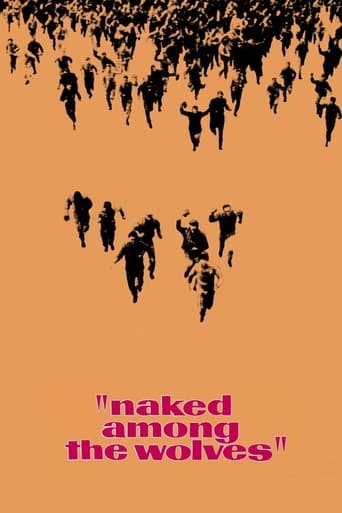


Naked Among Wolves
Based on a true story of inmates at KZ Buchenwald that risked their lives to hide a small Jewish boy shortly before the liberation of the camp.
-
- Cast:
- Erwin Geschonneck , Armin Mueller-Stahl , Fred Delmare , Gerry Wolff , Viktor Avdyushko , Zygmunt Malanowicz , Erik S. Klein


Similar titles
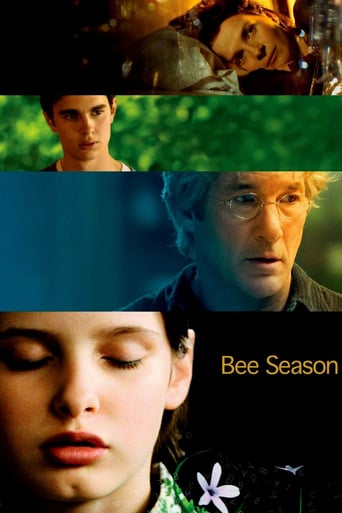
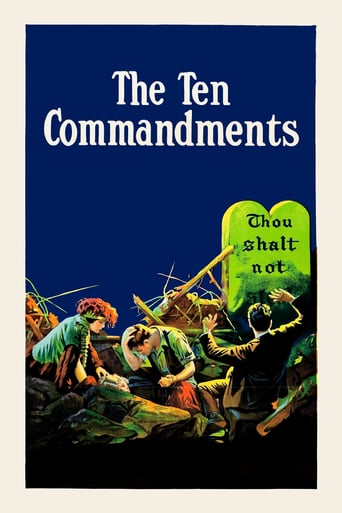
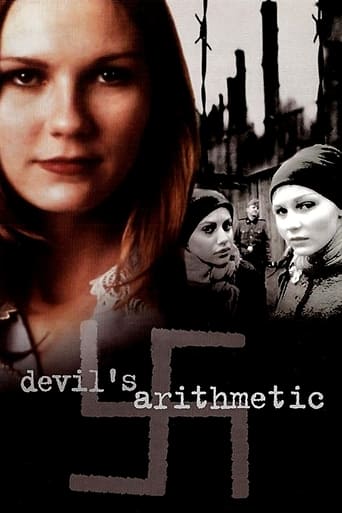
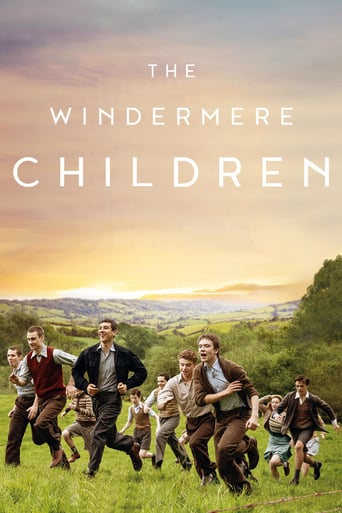
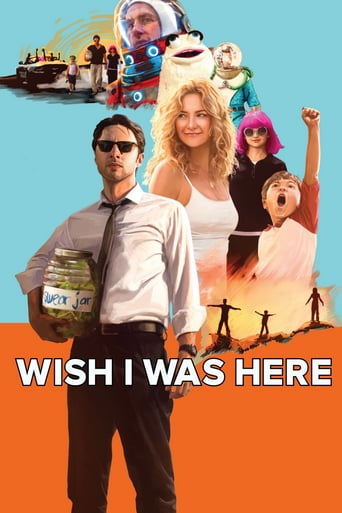
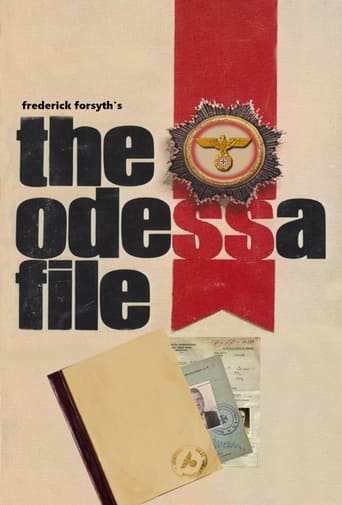
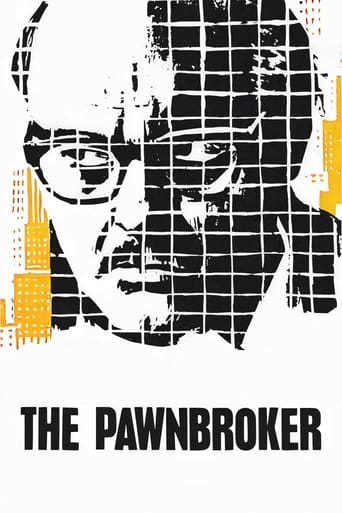
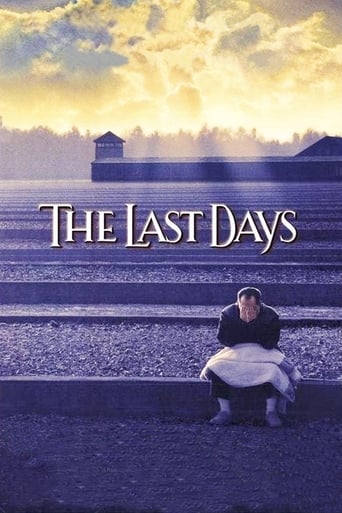
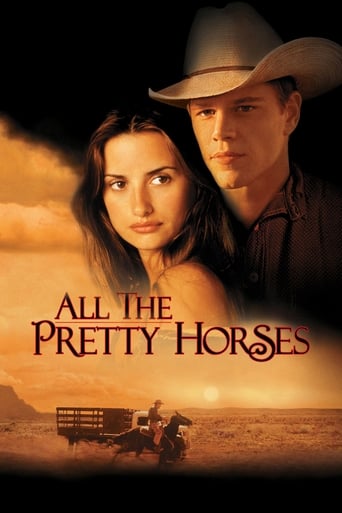
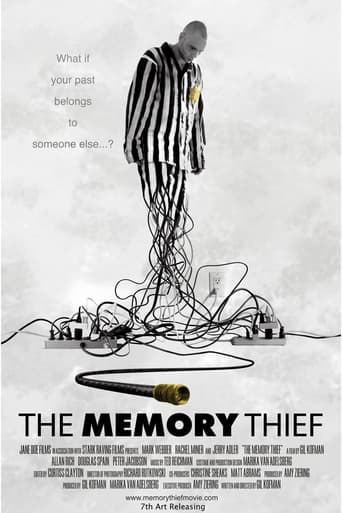
Reviews
Don't listen to the negative reviews
A lot of fun.
The best films of this genre always show a path and provide a takeaway for being a better person.
By the time the dramatic fireworks start popping off, each one feels earned.
"Nackt unter Wölfen" or "Naked Among Wolves" is an East German black-and-white film from 1963, so already over 50 years old. The director is Frank Beyer and he is considered the GDR's most talented filmmaker by many. The fact that he also made the Oscar-nominated "Jacob the Liar" certainly helps this theory. But back to this one here. Beyer also worked on the script, together with Bruno Apitz, the man who wrote the original novel. The title here is a reference to a child who gets found by inmates of a concentration camp and they need to decide what to do with the Jewish boy. Risk their own lives by trying to protect him or hand him to their captors and maybe get a reward? This is the major plot of the film, even if their decision becomes obvious really quickly, which certainly took out a lot of tension from the film and may have kept it from becoming a better work and more thrilling watch.The novel has been adapted 3 times so far and this was the second shot at the material I believe. The 3rd one was extremely recent, a television movie from last year and both approaches did not convince me unfortunately. The struggles were of a different kind, but neither filmmaker managed to make this a compelling watch. In this old version here, every time the action moves away from the child story, it becomes fairly boring and uninteresting and sadly it does on many occasions. Another problem here is that many of the characters seem interchangeable. The cast includes a couple names who may be known to fans of old (East) German cinema, but I personally would not call myself like that and that is probably why the only one I am familiar with here is the fairly young Armin Mueller-Stahl, almost half a century before his Academy Award nomination. All in all, I thought this movie here had too many lengths and too little interesting content, especially for a film that ends just seconds before the 2-hour mark. Thumbs down and I do not recommend the watch.
The Communist prisoners did not lead a revolt to liberate Buchenwald, which was liberated by the United States Army. The movie does not show one American. The German Democratic Republic set up a ceremonial entry to the camp next to the tower that predated the camp. They put up a giant statue showing armed prisoners. After unification, the German government moved the entrance to the main gate (seen often in the movie) and closed off the ceremonial entrance. The tower was closed to the public, ostensibly because it was unsafe. The statues were allowed to rust. In any event, East Germany overlooked another force for revolt, the Canadians. An article I wrote about a stamp showing the monument brought a flood of mail from Canada informing me that the Canadians, not the Communists, were at the core of the revolt.
This is one of many extremely interesting and important movies from East German Cinema, a cinema that has been forgotten and ignored until recent years (thanks First Run Features!!!). First off, I read the English translation of Bruno Apitz' long novel BEFORE watching this movie, so this may be long-winded and speaks of the adaptations and East German cinema.When I finally sat down to watch the adaptation (by Apitz and others), I was truly astounded by how close novel and movie were. Usually, film directors edit written stories to the point that the original intent and story is nearly lost under a pile of rhetoric and nonsense (oh, Spielberg, can you hear me??). Not here. There are some plot lines that are missing and characters that aren't fully developed and/or missing from the novel (like the character of Mandrill (the biggest "let down" for me), the janitor, Zweilling's wife, and many of the Nazis). It's not a huge problem when it comes to the smaller characters from the novel, in my opinion, because it is an adaptation. Where the problems lie is that the viewer must read the novel to get more 3-dimensionality to the characters and understand what is being cut from their cinematic viewing (through agenda-driven censorship). Apitz gives readers the characters' thoughts, and those thoughts can only be expressed through acting gestures, which can seem flat (sometimes silly) in the movie. However, this is East German cinema, which tends to be stagy more than fluid and natural. It is just a fact. If you see the East German version of 'Jacob the Liar' (also by director Beyer) you'll understand.Let me backtrack with some info on East German cinema, if I can. After watching several movies from this country, it appears to me that censorship is extremely strong. East German filmmakers are NOT allowed to demean Germans, whether they are Nazis (as far as criticizing them being ethnic German) or otherwise. It's just against the communist agenda (one needs to get some history about the waning years of Soviet occupation to understand). A German is a German is a German, and it's the ideology that makes a true, whole spiritual entity (read: Communism). There are mean fascists and good communists. It's pretty straight forward. The Nazis are NOT allowed to be comrades (communists); they have "individuality" by having their own agendas, and they weasel their way out of any situation like cowards. East German movies (and novels) are strictly about mass victimization, not ethnicities or any "groups." For instance, the child is Jewish, but his Jewishness is relatively ignored in the movie (even though there is a reference to Auschwitz). The story is about comradery against the fascists. The ethnicities amongst the prisoners are erased, even though they are mentioned in the book (there is a Pole and a Russian in the movie, but weren't those Bloc countries?? The Dutch and the French ethnicities disappear from their characterizations in the book).Back to the review... Most all of the acting is great (even though some is stagey, as I mentioned before). Armin Mueller Stahl is fantastic, as usual, and I wish he had more screen time. Glad he jumped out of East Germany, because you can see his potential greatness in this early movie until his mastery of acting today with the range of his abilities! The cinematography and direction are excellent, as much as the adaptation. This movie is a must for those studying East German cinema and the "genre" of concentration camp cinema. An excellent movie to analyze by non-communist eyes. I wish the scenes of brutality were more realistic, because they certainly are in the novel. Try to read the book BEFOREHAND (it is VHTF). It will not be easy to follow the final 15-20 minutes of the movie without some key information. Sometimes it just has to be done! The movie is a fine example of adaptation and adhering to novel's plot.9 of 10 -------- E.
For historical significance this movie deserves more than a 7, but one should rate movies based on how much one actually liked the movie, thus my 7 rating. (This still means I liked and recommend the movie!) I watched this after seeing Frank Beyer's "Jakob the Liar," and I think "Naked Among Wolves" is the better film. One of my nit-picks with these films is that the harshness and brutality of life in the ghetto or concentration camp is not fully revealed. The films are products of their times, I suppose. And one cannot make actors look like skeletons. The most brutal portrayal of the holocaust I have seen (in a non-documentary) is in the TV mini-series "War and Remembrance." Neither of Beyer's films comes close. Again, I'm sure that there was so much an East German film director in the 1960's and 70's could do. That criticism out of the way, I think that "Naked Among Wolves" is a fine film with interesting characters and performances.
